Biden agrees in principle to Ukraine summit with Putin
Blinken said on Sunday that the extension of the exercises in Belarus made him more worried
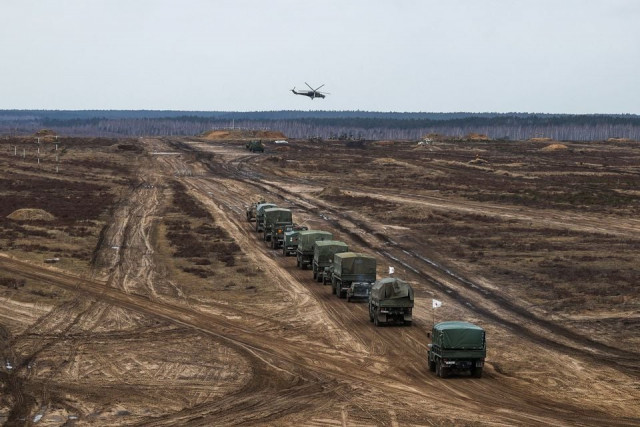
U.S. President Joe Biden and Russian President Vladimir Putin have agreed in principle to a summit over Ukraine, the French leader said on Monday, offering a possible path out of one of the most dangerous European crises in decades.
The office of French President Emmanuel Macron said in a statement he had pitched to both leaders a summit on "security and strategic stability in Europe." The White House said in a statement that Biden had accepted the meeting "in principle" but only "if an invasion hasn't happened."
"We are always ready for diplomacy," White House Press Secretary Jen Psaki said. "We are also ready to impose swift and severe consequences should Russia instead choose war."
Messages seeking comment from the Kremlin and from the office of Ukrainian President Volodymyr Zelenskiy were not immediately returned early on Monday.
Many details about the proposed summit - which was announced after a volley of phone calls between Macron, Biden, Putin, Zelenskiy, and British Prime Minister Boris Johnson - are not clear.
Macron's office and the White House said the substance of the summit would be worked out by U.S. Secretary of State Antony Blinken and Russian Foreign Minister Sergei Lavrov during their meeting planned for Feb. 24. What role Ukraine would play in the summit, if any, was also uncertain.
A Biden administration official said in an email that the summit was "completely notional" as the timing and format had yet to be determined.
Oil prices fell, Asian share markets pared losses and Wall Street futures rallied as the glimmer of hope for a diplomatic solution emerged.
But Michael McFaul, a former U.S. ambassador to Russia, said he was sceptical the summit would happen.
"But if Biden and Putin did meet, they should invite (Zelenskiy) to join," he said in a message posted to Twitter.
News of Macron's proposal comes after a week of heightened tension spurred by Russia's military buildup on Ukraine's borders. Russian forces have been amassing around its neighbour since late last year, something Western countries say is a prelude to an invasion that could come at any moment.
Russia denies any intention to invade, but nerves were further frayed when the Belarusian defence ministry announced that Russia would extend military drills in Belarus that were due to end on Sunday.
U.S.-based satellite imagery company Maxar reported multiple new deployments of Russian military units in forests, farms, and industrial areas as little as 15 km (9 miles) from the border with Ukraine.
Blinken said on Sunday that the extension of the exercises in Belarus, bordering Ukraine to the north, made him more worried that Russia was on the brink of an attack.
"Until the tanks are actually rolling, and the planes are flying, we will use every opportunity and every minute we have to see if diplomacy can still dissuade President Putin from carrying this forward," he told CNN.
In a letter to U.N. human rights chief Michelle Bachelet, seen by Reuters on Sunday, the United States raised concern that "further Russian invasion of Ukraine may create a human rights catastrophe."
"Specifically, we have credible information that indicates Russian forces are creating lists of identified Ukrainians to be killed or sent to camps following a military occupation," wrote U.S. Ambassador to the U.N. in Geneva, Bathsheba Nell Crocker.
She also said Washington has credible information that Russian forces would likely use lethal measures to disperse protests or to counter "peaceful exercises of perceived resistance from civilian populations."
SPORADIC SHELLING
Sporadic shelling across the line dividing Ukrainian government forces and pro-Russian separatists in eastern Ukraine has intensified since Thursday. Sounds of fighting continued into Monday, when a blast was heard in the centre of the separatist-held city of Donetsk. The cause was not known.
The rebels said on Monday that two civilians were killed in shelling by Kyiv government forces, Russia's RIA news agency reported.
Kyiv has accused pro-Russian forces of shelling their own compatriots in the breakaway region to blame the attacks on Ukrainian government forces.
Western countries are preparing sanctions they say would be wide-reaching against Russian companies and individuals in case of an invasion.
British Prime Minister Boris Johnson told the BBC such measures could include restrictions on Russian businesses' access to the dollar and the pound.
European Commission President Ursula von der Leyen told German broadcaster ARD that Russia "would in principle be cut off from the international financial markets" and be cut off from major European exports
Ukrainian Foreign Minister Dmytro Kuleba said it was time for the West to implement at least part of the sanctions it has prepared.
The Biden administration has refused to do so, saying their deterrent effect would be lost if they were used too soon.

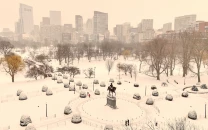
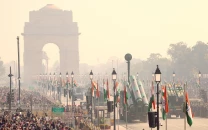
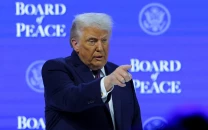
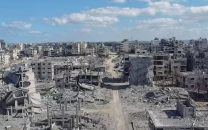
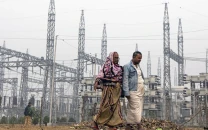
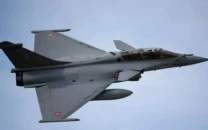











COMMENTS
Comments are moderated and generally will be posted if they are on-topic and not abusive.
For more information, please see our Comments FAQ